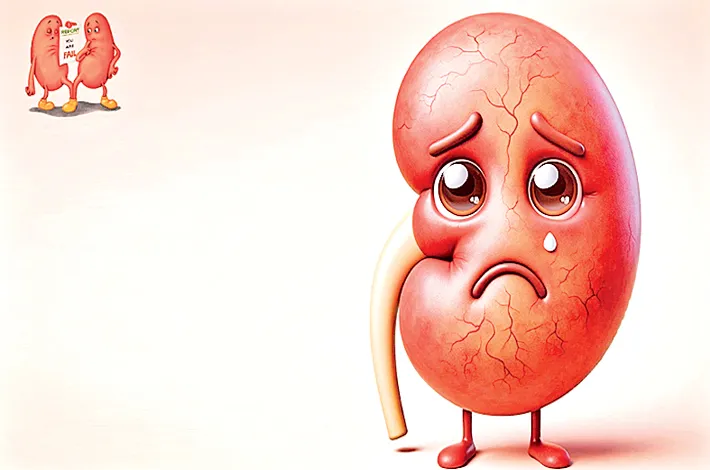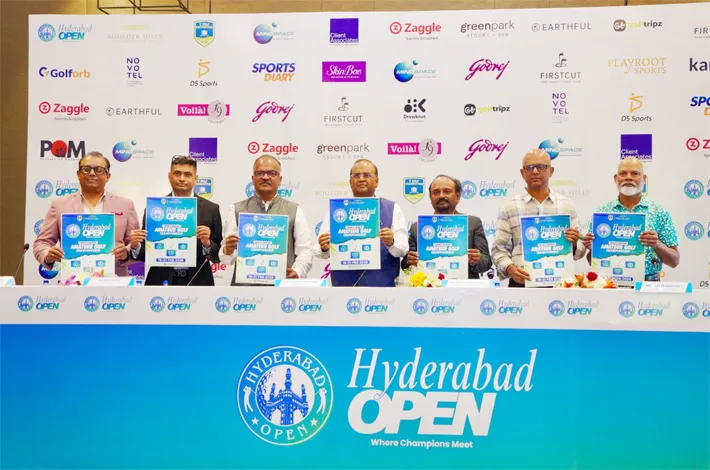Rising Kidney Disease cases in Hyderabad
28-10-2025 12:00:00 AM

The number of patients experiencing kidney failure has increased by 30% to 40%
■ Routine health checkups and tests, often included in health insurance plans, are helping with early detection of kidney issues.
■ Healthcare professionals are advising people to embrace healthier lifestyles, stay properly hydrated, and schedule regular checkups.
■ Diabetes continues to be the primary cause of kidney dysfunction, Heart diseases also becoming more prevalent
HEMA SINGULURI I hyderabad
Hyderabad is witnessing a disturbing surge in kidney-related diseases, with an increasing number of cases of both chronic kidney disease (CKD) and a newly identified condition called "chronic kidney disease of unknown etiology" (CKDu).
This trend is particularly alarming as it affects not only the elderly but also younger individuals and those without diabetes. Medical experts across the city are attributing the rise to several interconnected factors, including poor lifestyle habits, environmental conditions, and inadequate health monitoring. They stress the importance of basic lifestyle changes, routine health checkups, and early detection to ensure better kidney health.
Contributing Factors to the Rise in Kidney Diseases
One of the most concerning aspects of this kidney disease surge is its impact on a broader demographic, including non-diabetics and younger adults. Senior nephrologists in major hospitals point to multiple causes fueling the increase in kidney dysfunction. These include rising rates of diabetes and cardiovascular diseases, poor dietary habits, consumption of contaminated water, and the excessive use of painkillers and other toxic medications. Additionally, environmental toxins and genetic factors are emerging as significant contributors to kidney health issues in the city.
Dr. CH. Sashidhar, a Senior Consultant Nephrologist at ESI Hospital, highlights that the number of kidney failure patients has risen by 30–40%, with an increase in dialysis sessions. According to Dr. Sashidhar, while diabetes remains the leading cause of kidney dysfunction, heart diseases and genetic factors are also becoming more prevalent. He notes that unhealthy diets, poor hygiene, and viral infections contribute to the overall kidney disease burden. Of particular concern is the rising use of painkillers and the impact of smoking, particularly among individuals from lower economic backgrounds. Dr. Sashidhar advises basic lifestyle changes such as maintaining good blood sugar control, quitting smoking, and scheduling regular health checkups.
The Role of Awareness in Early Detection
Dr. Seerapani Gopaluni, Consultant Nephrologist at Apollo Hospitals, Jubilee Hills, explains that the perceived increase in kidney disease cases is partly due to heightened awareness among the public. As people become more informed about the link between diabetes and kidney disease, more individuals are seeking routine health tests, leading to earlier diagnosis. Dr. Gopaluni stresses the importance of the estimated glomerular filtration rate (eGFR) test, which helps assess kidney function. He adds that general health checkups and tests as part of health insurance programs are also aiding in early detection.
Despite the benefits of increased awareness, lifestyle factors remain crucial. Dr. Gopaluni warns that the rise in obesity is contributing to higher rates of both cardiovascular and kidney diseases.
Furthermore, he cautions against the indiscriminate use of certain herbal and Ayurvedic medicines, which may contain heavy metals like mercury, known to cause kidney damage. Contaminated water sources also pose a significant risk, particularly in regions like the Uddanam area of Srikakulam, where water contamination is linked to CKD. Dr. Gopaluni recommends annual checkups for individuals over 40, particularly those with diabetes or hypertension, as kidney disease often progresses silently without noticeable symptoms.
Emerging Patterns and the Silent Progression of Kidney Disease
Dr. E. Ravi, Senior Consultant Nephrologist at KIMS Hospitals, observes a steady increase in kidney disease patients at his facility. He emphasizes that dehydration is a critical risk factor for kidney damage, particularly in individuals from low-income backgrounds who work outdoors in extreme heat. Long hours of exposure to heat can lead to dehydration, which significantly raises the likelihood of kidney issues. Dr. Ravi attributes the rise in kidney disease to a combination of factors, including heat exposure, environmental toxins, and diabetes. He stresses that kidney diseases are often asymptomatic in the early stages, which is why many patients delay seeking medical attention until severe damage has occurred.
Dr. Ravi echoes the concerns raised by his colleagues about the harmful effects of painkillers, herbal medicines, and Ayurvedic treatments containing heavy metals. His advice to the public is straightforward: regular health checkups, particularly blood tests, should not be delayed, especially for people with diabetes, hypertension, or a family history of kidney disease.
The rise in kidney disease cases in Hyderabad is a growing public health concern. With an increasing number of young and non-diabetic individuals being affected, doctors are urging citizens to adopt healthier lifestyles, maintain proper hydration, and undergo regular checkups. By identifying kidney issues early, people can take steps to manage their health before significant damage occurs. Public awareness, lifestyle changes, and routine medical checkups are essential to combating this rising epidemic and ensuring better kidney health for the future.








